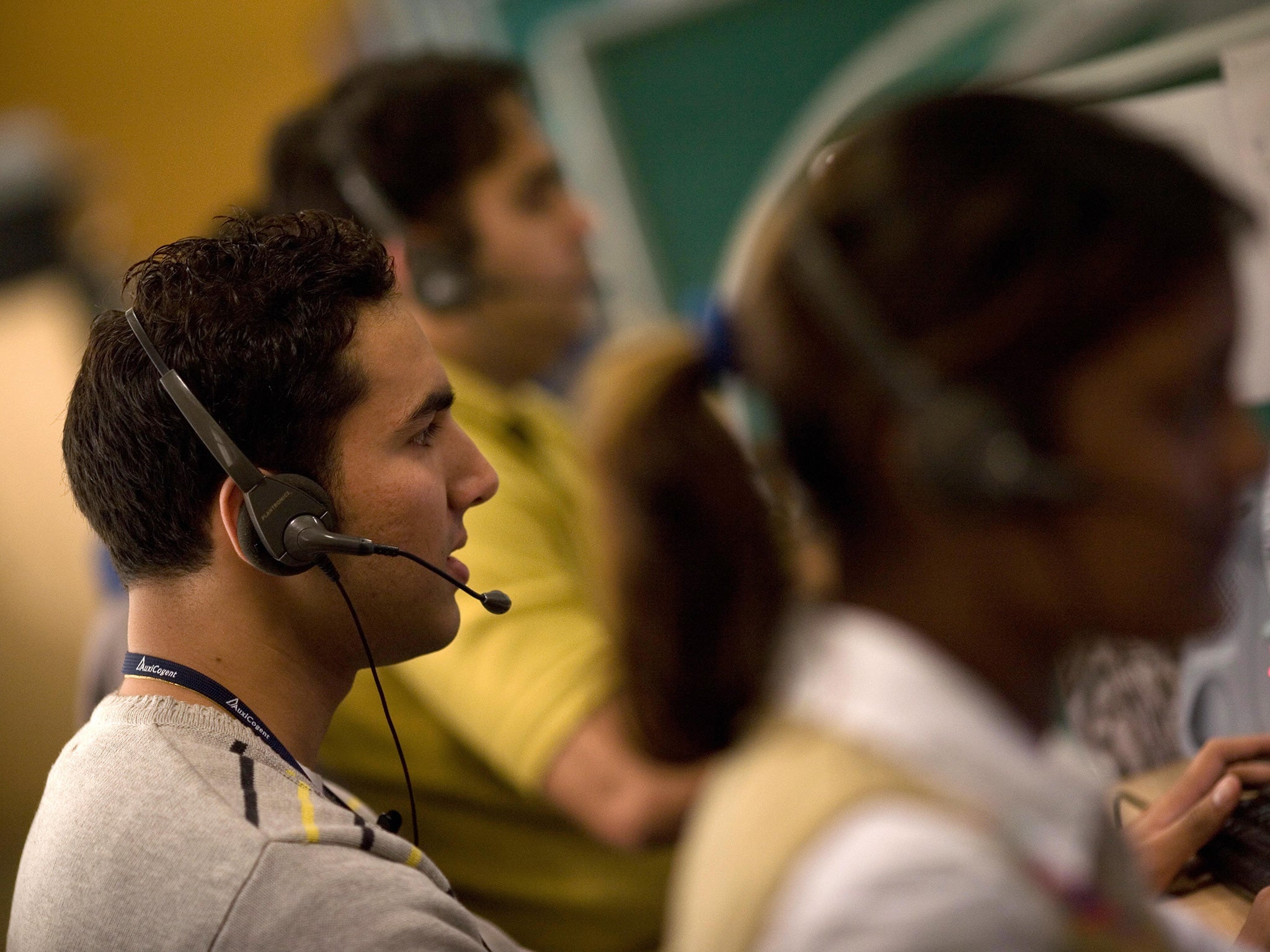Cold-calling: What the callers themselves have to say about their work
'At first it’s quite terrifying because I’d say 80 per cent of people are at least slightly angry with you'

They are among the most hated people in Britain. So when Sean O’Grady issued a rallying call for the oppressed masses to rise up against the “misery” inflicted by cold-callers – this will be “our El Alamein, our Agincourt” – in his Independent column last Saturday, the response was swift.
However, among readers’ tales of woe, anger and gleeful retribution was a different view – cold-callers are people too.
The extent of the problem is clear. About a billion unwanted calls and texts are received every year, with 175,000 formal complaints last year. Last month, the Information Commissioner’s Office even had to order a company that was “telephoning people to sell a device to stop unsolicited calls” to “stop making nuisance calls”. But is it fair to blame the cold-callers themselves?
Daniel Kraemer, a 26-year-old student from North London, works occasionally for a political polling company.
“At first it’s quite terrifying because I’d say 80 per cent of people are at least slightly angry with you,” he said.
His worst call produced one of the relatively rare occasions when a cold-caller ends the conversation. “I did my intro, making it clear who we are and there was silence and then, forgive my language, he said, ‘You are a massive c***, you are the biggest, most massive c*** I’ve ever spoken to,’” Mr Kraemer said. “Some people want to do the abusive language thing… I think they must get some enjoyment out of it. He didn’t then hang up, so I had to hang up.”
However cold-calling is not all doom and gloom. As someone with a keen interest in politics, Mr Kraemer can get caught up in a conversation.
“I had a Scottish judge who kept me on the phone for about 20 minutes, telling me about the history of the British constitution and how Scotland fits into it. He was claiming he had a big part to play in the formation of the Scottish Parliament,” he said.
“I looked him up and there was a bit of exaggeration there. He just wanted to tell me about his life.
“You get a lot of people who are clearly quite lonely.”
Emilie Lamplough, 27, of Trowbridge, Wiltshire, spent a week calling people on behalf of a car company and another week for an insurance company about three years ago while temping.
“I always remember those ones because they were so unpleasant, talking to people who don’t want to talk to you,” she said. “I’d feel crestfallen by the end of the day. I’d be sitting on a bus feeling miserable, you’d just lose the will to live really.”
Amid the abuse and exhortations to “for God’s sake, get a life”, one call, lasting seconds, stood out.
“A man said to me, ‘Oh no, I’m not interested, but you’ve a long day ahead of you, I hope have a nice day,’” said Ms Lamplough, who now works in a charity shop and as a swimming pool receptionist. “That was a nice, light-hearted start to the day.”
While working for a market research company in 2012, Northern Irishman Ross McKeown was required to make calls from a list that included ex-directory and supposedly blocked numbers.
“It definitely alarmed people,” he said. “They didn’t think it was legitimate, but it was the nature of the permissions given to market research agencies in this country.
“I did come across some extreme hostility. There was a degree of, not aggression, but certainly people who said it was me invading their personal space.”
But Mr McKeown, 26, of Wandsworth, London, also found he could be an outlet for the frustrations of “disgruntled students” when doing research about university life.
They proved to be “extraordinarily eager to speak at length about personal traumatic experiences” and complain about “difficult professors”, he said.
Now planning to study for a law degree, the former cold-caller has recently been inundated with unsolicited calls.
“I would never be impolite to someone simply calling to ask for my opinions on things,” said Mr McKeown. “People selling things… I probably just decline, though probably less politely than I would like to think I do.”
Join our commenting forum
Join thought-provoking conversations, follow other Independent readers and see their replies
Comments